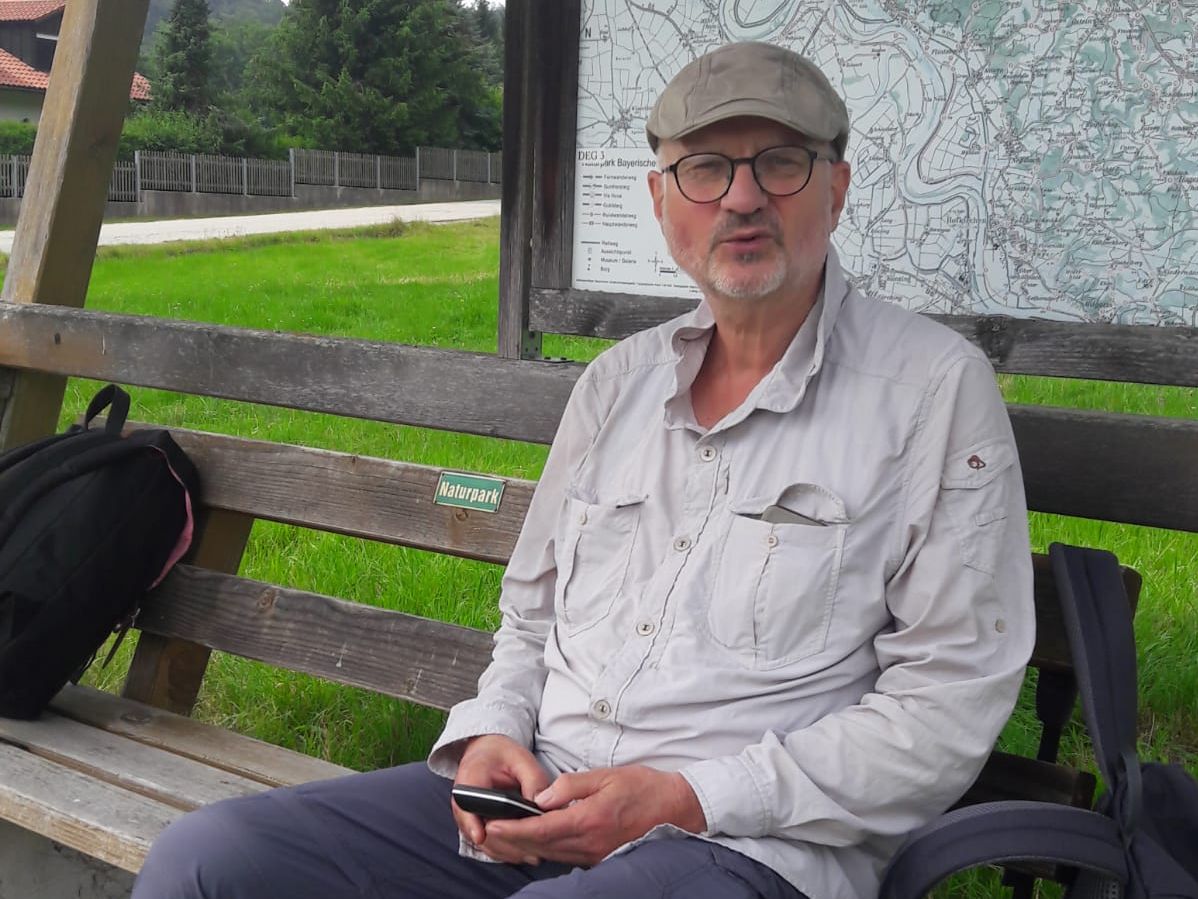An espresso with…Helmut Zachau

Helmut Zachau, born in 1948, trained as an industrial clerk and studied socioeconomics at the Hamburg University of Economics and Politics (HWP) before coming to the University of Bremen for an LSIIbF degree (1973–1976) in teaching vocational subjects at secondary level II. Later he was a teacher, a Member of Parliament for the Greens for five years and, most recently before his retirement, Director of School Centre Walle.
Why did you go to the University of Bremen?
It was actually by chance. I worked in Munich for a while and met and fell in love with a woman there who is from Bremen. So after I finished my studies at HWP, I moved to Bremen and wanted to work in adult education. But that fell through, and then an acquaintance suggested I go to University of Bremen – something I didn't have in mind at all at the time. I applied and was lucky enough to get a place in the LSIIbF course straight away. In any case, it wasn’t motivated by politics.
What was the most formative experience for you at Uni Bremen?
The total openness that was there. At HWP our studies were organised in a pretty stringent way, with all the left-wing trade union demands. We all came from the world of work. You had to take a number of courses that ended with an exam. At Uni Bremen it was completely different. Here I didn’t write a single exam. Here, no one told me what I actually had to do. It wasn't so easy to figure out where you belonged and what you really wanted to do, even though there weren’t many people in our degree programme. And the project-based approach [to learning] was totally new for me. That was really exciting.
Looking back, how would you assess the political atmosphere at the university during that time?
I learned an enormous amount then and I'm surprised that the university isn’t highlighting this period as part of its 50th anniversary celebrations. I was a member of the Socialist University Association (SHB), which right away got me involved in political activities, a very intensive time. For example, when we discussed the anti-fascist character of the German constitution [the Basic Law] with our law professor, Gerhard Stuby, and then took a critical look at the Maoists, who thought that the Basic Law was just an instrument of imperialism for the exploitation of the working class. Or the whole question of grading, which was very important for my later profession – reflecting on what a numerical grade actually means. Or the Integrated Entrance Phase, when we reflected intensively for two semesters on the social significance our future profession, the question of why do we want to take it up? These were processes that brought me an incredibly long way, both personally and politically.
As a student, you were also involved in the legendary photo op "Is the red university taking a bath?” (Geht die rote Uni baden?)…
At that time, the university had a bad reputation as a training ground for “reds". With this photo op, we hoped that we would get a story in a mass-circulation magazine like Stern, where we wouldn’t just be portrayed as radical left-wing subversives, but that for once, the substance of university reform would be reported on. That's why I joined in, even though I didn't like the part about the bathing suits, because I was the only one in this distinguished group with a beginning of a belly. The photo made the cover of Stern, but unfortunately the story was just as much of a disaster as all the others before. This led to a lot of criticism in the student community that I was a careerist who was currying favour with the bourgeois press. The funny side of it came later, when my secondary school students kept asking me about it during their campus visitation days. That made up for the annoyance of the first few years.
What did you bring from your studies into your professional life?
A lot. The necessity of teamwork, of reflecting together. And concepts like "learning to learn". As a teacher, I wrote a proposal for a pilot project that drew strongly on those ideas. And other aspects of pedagogy that got us lambasted as left-wing utopians at the time, but which are taken for granted today.
“50 Yearsof Uni Bremen”—What do you associate with that?
First my own story. Then what’s changed. After I retired, I accompanied student teachers during their practicum and was shocked at what had become of our programme. Nearly nothing to be seen of overarching questions, of reflecting on society. The students explained to me that everything is accounted for by credit points, at the end a sum of individual knowledge. I think that’s a pity, pedagogically it’s not up to date. I asked myself, why is that [reflecting] gone today? It was right, what we did. For me, the old accountant's wisdom applies: if you get stuck, go back to the opening balance sheet, and that means for the university: why are we actually doing this? This basic question has stayed with me. It’s a building block of university [education] that I've nurtured my whole life.

